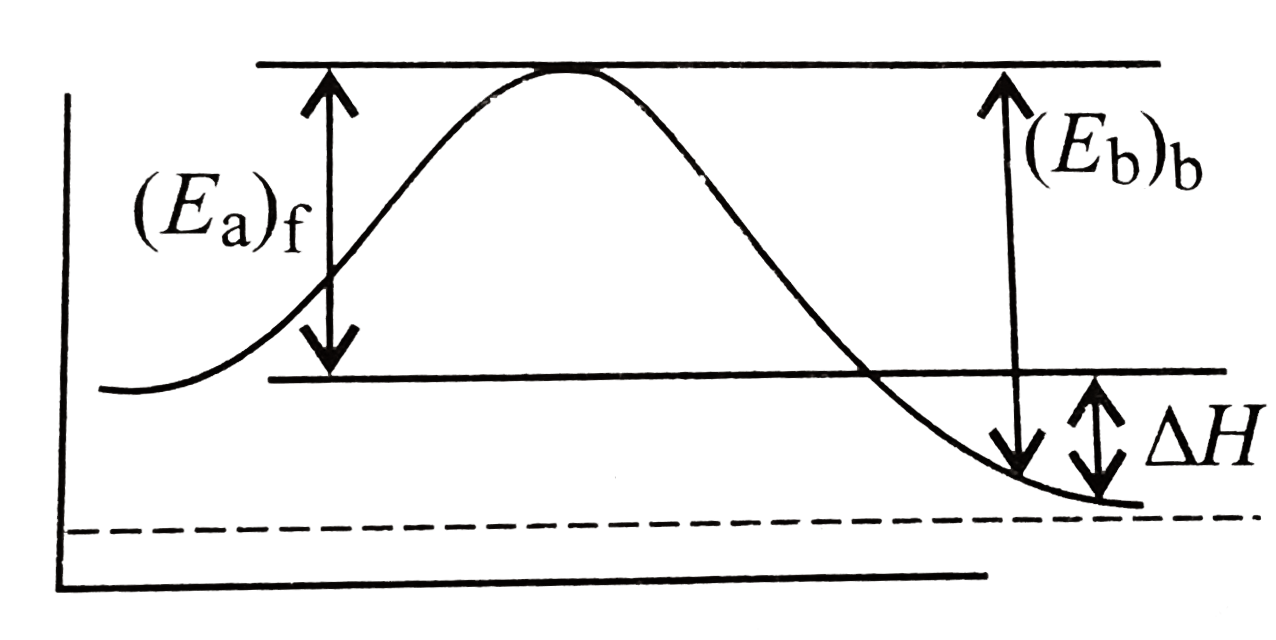For the chemical reaction X Y , the standard reaction Gibbs energy depends on temperature T (in K) as ΔrG0 ( in kJ mol−1 ) = 120−38T . The major component of the reaction mixture at T is
X if T 315 K
Y if T 300 K
Y if T 280 K
X if T 350 K
The correct Answer is:A
ΔrG∘=120∘−38T⇒ For ΔrG∘=0,T=320k
Above 320k,ΔrG∘ is - ve, major component would be Y. While below 320k,ΔrG∘ is + ve and major component would be x.
Similar Questions
The standard reaction Gibbs energy for a temperature T is given by
ΔrG∘=A−Bt
Where A and B are non-zero constants.
Which of the following is TRUE about this reaction ?
View SolutionFor a chemical reaction A+ B ⇔C+D(ΔrH0=80 KJ mol−1) the entropy change ΔrS0 depends on the temperature T (in K) as (ΔrS0=2T(JK−1mol−1) .
Minimum temperature at which it will become spontaneous is ___________ K. (Integer)
View Solution
Knowledge Check
Which of the following can help to predict the rate of reaction if the standard Gibb's free energy of reaction (ΔrG∘) is known ?
AEquilibrium constantBΔrH∘CΔrU∘DHeat liberated during the course of reaction in calorimeterThe activation energy for the forward reaction X→Y is 60kJmol−1 and ΔH is −20kJmol−1. The activation energy for the reverse reaction is
A80kJ mol−1B40kJ mol−1C60kJ mol−1D20kJ mol−1The activation energy for the forward reaction X→Y is 60kJmol−1 and ΔH is −20kJmol−1. The activation energy for the reverse reaction is
A80kJ mol−1B40kJ mol−1C60kJ mol−1D20kJ mol−1
The standard Gibbs energy change for the reaction
2SO2(g)+O2(g)→2SO3 (g)
is −142kJmol−1 at 300 K. Calculate equilibrium constant.
View SolutionThe activation energy for the forward reaction X→Y is 60kJmol−1 and ΔH is −20kJmol−1. The activation energy for the reverse reaction is
View SolutionIn an exothermic reaction X→Y, the activation energy is 100kJmol−1 of X. The enthalphy of the reaction is −140kJmol−1. The activation energy of the reverse reaction Y→X is

View SolutionFor a certain reaction the variation of rate constant with temperature is given by the equation
lnkt=lnk0+(ln3)t10(t≥0∘C)
The value of temperature coefficient of the reaction is
View Solutionstatement-1 : For every chemical reaction at equilibrium standard Gibbs energy of reaction is zero.
statement-2 : At constant temperature and pressure, chemical reactions are spontaneous in the direction of decreasing Gibbs energy.
View Solution
